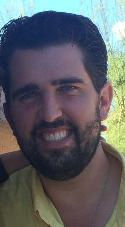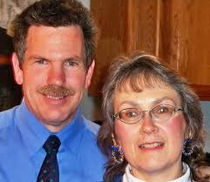The Catholic Defender: Saint Thomas Aquinas
- Donald Hartley

- a few seconds ago
- 10 min read
Updated: 5 hours ago
Deepertruth with special permission and aid with Franiciscan Media, a great team for the Lord

At 5-years-old, Thomas began his education at Monte Cassino, where he remained until the military conflict between Emperor Frederick II and Pope Gregory IX reached the abbey. He was then transferred and enrolled at the studium generale in Naples.
Thomas Aquinas was the greatest of the Scholastic philosophers. He produced a comprehensive synthesis of Christian theology and Aristotelian philosophy that influenced Roman Catholic doctrine for centuries and was adopted as the official philosophy of the church in 1917.
By universal consent, Thomas Aquinas is the preeminent spokesman of the Catholic tradition of reason and of divine revelation. He is one of the great teachers of the medieval Catholic Church,or of the Church and Angelic Doctor. honored with the titles Doctor.
At five he was given to the Benedictine monastery at Monte Cassino in his parents’ hopes that he would choose that way of life and eventually became abbot. In 1239, he was sent to Naples to complete his studies. It was here that he was first attracted to Aristotle’s philosophy.
It is believed that Thomas was introduced to his philosophical influences - Aristotle, Averroes, and Maimonides - at the university, where he also met John of St. Julian, a Dominican preacher, who influenced him to join the recently founded Dominican Order.
When Thomas' family learned of his decision, his mother Theodora arranged for him to be moved to Paris. When Thomas was travelling to Rome, his brothers captured him and returned him to their parents at the castle of Monte San Giovanni Campano.

By 1243, Thomas abandoned his family’s plans for him and joined the Dominicans, much to his mother’s dismay. On her order, Thomas was captured by his brother and kept at home for over a year.
Aquinas's parents, hoping he might come to his senses, conspired to have him kidnapped and imprisoned for more than a year in the family castle.
Aquinas got on with writing logical treatises, until his brothers tried to make him see the error of his ways by helpfully inserting a prostitute into his cell. Aquinas, in a perhaps unprecendented display of monkish restraint, did not succumb to her worldly charms, but rather, wielding a burning stick, chased her from the castle.
That night two angels were said to have appeared to him in a dream, strengthening his resolve to remain celibate.
Aquinas's family, realized then that he was a lost cause, allowed him to escape, and Aquinas trotted off to Napes, Rome, Paris and, finally, Cologne, where he took up a professorial position and was ordained to the priesthood.

Thomas was held captive in the castle for one year as his family tried to keep him from joining the Dominican Order. In the year he was held, Thomas tutored his sisters and communicated with members of the Dominican Order.
Once free, he went to Paris and then to Cologne, where he finished his studies with Albert the Great. He held two professorships at Paris, lived at the court of Pope Urban IV, directed the Dominican schools at Rome and Viterbo, combated adversaries of the mendicants, as well as the Averroists, and argued with some Franciscans about Aristotelianism.
In 1252, Thomas returned to Paris to earn his master's degree in theology. As an apprentice professor, he lectured on the Bible and devoted his final three years of his education to Peter Lombard's Sentences.
His greatest contribution to the Catholic Church is his writings. The unity, harmony, and continuity of faith and reason, of revealed and natural human knowledge, pervades his writings. One might expect Thomas, as a man of the gospel, to be an ardent defender of revealed truth. But he was broad enough, deep enough, to see the whole natural order as coming from God the Creator, and to see reason as a divine gift to be highly cherished.
Aquinas's first three arguments—from motion, from causation, and from contingency—are types of what is called the cosmological argument for divine existence. Each begins with a general truth about natural phenomena and proceeds to the existence of an ultimate creative source of the universe.
The Summa Theologiae, his last and, unfortunately, uncompleted work, deals with the whole of Catholic theology. He stopped work on it after celebrating Mass on December 6, 1273. When asked why he stopped writing, he replied, “I cannot go on…. All that I have written seems to me like so much straw compared to what I have seen and what has been revealed to me.” He died March 7, 1274.

In 1265, Thomas was summoned to Rome to serve as the papal theologian and was later ordered by the Dominican Chapter of Agnani to teach at the studium conventuale, which was the first school to teach the full range of philosophical subjects of both moral and natural natures.
His best-known works are the Disputed Questions on Truth (1256–1259), the Summa contra Gentiles (1259–1265), and the unfinished but massively influential Summa Theologica, or Summa Theologiae (1265–1274).
He continued to write and released several more books until 1268, when he was called to Paris for a second teaching regency. He was named regent master again and stayed until 1272. During this time, he wrote De virtutibus and De aeternitate mundi.
The master principle of natural law, wrote Aquinas, was that "good is to be done and pursued and evil avoided." Aquinas stated that reason reveals particular natural laws that are good for humans such as self-preservation, marriage and family, and the desire to know God.
Aquinas believes that natural reason can demonstratively prove God's existence. The first step is to show that, for everything in the changeable world around us, there is a first cause, or prime mover, in virtue of which all other things have their existence, their motion, their qualities and direction
In one extreme case Thomas was stumped by a difficult passage from Isaiah. For several days he prayed and fasted begging God to shed some light on the mind of the prophet. One night he stayed up late praying in his cell. From outside his secretary, Reginald, heard him conversing with what sounded like two other voices.

When the voices grew quiet Thomas called to Reginald and proceeded to dictate a clear and thorough interpretation of the passage. After much and insistent entreaty, Thomas admitted that the two voices were those of Sts. Peter and Paul, sent to answer his prayer.
At the conclusion of his regency, the Dominicans called Thomas to establish a university wherever he wanted with a staff of whomever he wished. He established the university in Naples and took the regent master post. In 1273 Thomas was seen by the sacristan Domenic of Caserta to be crying and levitating in prayer before an icon of the crucified Christ at the Dominican convent of Naples, in the Chapel of Saint Nicholas.
He was especially mindful of God’s presence in the Holy Eucharist. Each morning he would say one Mass and attend another before turning to his scholarly activities. Many witnesses for his canonization tell of this daily practice and of the tears he would frequently shed at the reception of God’s body and blood.
At other times he could often be found in the chapel with his head resting on the tabernacle. His love for Christ in this sacrament is manifest in his Eucharistic hymns, especially O Salutaris Hostia, Adoro Te Devote, the Pange Lingua, and the Tantum Ergo. These are still some of the most beautiful hymns ever written, and they flowed from the heart of a man who is often caricatured as living among dry abstractions.
His heart was full of Christ. There are many beautiful stories that show this. He became quite fearful in thunderstorms but would remind himself that “God came to us in the flesh; He died for us and rose again” (p. 53). So he knew where to turn when things got tough.
In the Summa (IIIa q. 79, a. 8), St Thomas Aquinas describes the effect of receiving Holy Communion. He says, [the Blessed Sacrament] should enflame us with desire for Our Lord, and “inflame our hearts [with charity] and make us godlike… The fervor of charity is its actual effect.” (IIIa q. 79 a. 8) These are its effects, unless we put up obstacles.
One Holy Communion is enough to make us saints. St Maria Goretti received Holy Communion only 5 times in her entire life – and she became a saint. Why is it then, that we do not become saints after so many Holy Communions? St Thomas explains that Holy Communion benefits those who receive Our Lord in the state of grace, more or less, according to the measure of their devotion. (IIIa q. 79 a. 7 ad 2) He explains why: “The effect of this sacrament… is received… according to the condition of the [receiver.]”(IIIa q. 79 a. 6 ad 1 )
So our level of devotion, our reverence for and appreciation of, the Most Blessed Sacrament will help or hinder the effects we get from our Holy Communions.
If we were more reverent towards and grateful for the Most Blessed Sacrament, our Holy Communions would be more fruitful.
During this prayer, Christ is said to have told him, "You have written well of me, Thomas. What reward would you have for your labor?"
Thomas replied, "Nothing but you, Lord."
He levitated during prayer. Jesus said he'd written well of Him, and offered him anything he wanted — and he said, “Only Yourself, Lord.”
Following this exchange, something happened but Thomas never wrote or spoke of it. He abandoned his routine and, when begged to return to work, replied, "I cannot, because all that I have written seems like straw to me."
“Master, will you not return to your work?” Thomas Aquinas replies with an emphasis that ensures he will not be asked again: “I can write no more.All that I have written seems like straw.” And on that enigmatic note, his life's work ends; within months his great intellect will be stilled in death.
In May of 1274, Thomas was called to the Second Council of Lyon, where his works for Pope Urban IV would be presented. While journeying to the meeting, Thomas hit his head on the branch of a fallen tree and fell ill. He was escorted to Monte Cassino to recover, then he set out again.

Unfortunately, he became ill once again and stopped at the Cistercian Fossanova Abbey, where the monks cared for him for several days.
He received his last rites and prayed, "I receive Thee, ransom of my soul. For love of Thee have I studied and kept vigil, toiled, preached and taught..."
Thomas died on March 7, 1274 during a commentary on the Song of Songs. Thomas' remains were placed in the Church of the Jacobins in Toulouse on January 28, 1369.
It is not known who beatified Thomas, but on July 18, 1323, Pope John XXII canonized him.
His original feast day was March 7, the day of his death, but because the date often falls within Lent, in 1969, a revision of the Roman Calendar changed his feast day to January 28, the date his relics were moved to Toulouse. Pope Pius V declared Saint Thomas a doctor of the church, saying Thomas was "the most brilliant light of the Church."
Thomas Aquinas, expanding upon Augustine's conception, said that a miracle must go beyond the order usually observed in nature, though he insisted that a miracle is not contrary to nature in any absolute sense, since it is in the nature of all created things to be responsive to God's will.
A COMET which for three years had shone over the monastery disappeared the day that the Angelic Doctor died. The sub-prior of the monastery came to lay his ailing eyes against the visage of the Saint. And at once he was cured. This was the first miracle to follow the death of Saint Thomas.
Saint Thomas' remains were moved to the Basilique de Sant-Sernin, Toulouse between 1789 and 1974. They were then returned to the Church of the Jacobins.

A sweet odor of roses escaped and filled the chapel, the cloister, and the whole monastery, so the secret could not be kept. The astonished monks hastened to the place whence this perfume came. And they saw the open tomb, and the body of the saint intact as that of a sleeping man.
The same thing happened fourteen years later. Lady Theodora wished to possess as a relic the right hand of her brother. From the open tomb and the intact body a flood of perfume rose again.
Lady Theodora received with great devotion and many tears the consecrated relic.
She kept it for a long time, and then she made a gift of it to a Dominican chapel.
Time passed. It was forty-two years since the Angel of the Schools had joined the celestial choir of the elect, when a visitor to this chapel asked the brother who was in charge to show him the relics.
He venerated them all very piously, but before the hand of Saint Thomas he started to laugh and mock.
Immediately he was seized with a strange sickness; he started to tremble, and his head began to throb.
Terrified, he saw his error, went to Confession, and came back to kiss with respect the hand that he had mocked.
The sweet odor that it gave forth cured him, and filled both his person and his clothing.

All those who met him later spoke of this good smell and asked its cause. This was the only penance of the poor cleric: each time anyone asked, he had to tell of his fault of irreverence, his strange sickness, his sudden cure, and the miraculous perfume of the hand, still intact. And thus he glorified the saint whom God honored by so many miracles.
And a great number of sick people who invoked him in their prayers or who visited his tomb were miraculously cured.
One day, messengers who were carrying documents concerning the miracles attributed to Brother Thomas Aquinas to the Pope, were going across the Alps above Lausanne.
A mule with a very heavy load slipped and fell, rolled down the side of a cliff, and was finally dashed against some jagged rocks.
Dom Mathieu, one of the envoys, invoked the aid of the saint. Then they saw the mule, safe and sound, walking at the bottom of the precipice.
The load he carried had not even slipped out of place.
Other messengers also, carrying to Pope John XXII the written testimony regarding the life and miracles of the Angelic Doctor, found themselves one day on a vessel sailing from Naples to the Roman Curia.
The wind, at first favorable, gave way to a storm. And in the midst of a frightful tempest the vessel was driven toward a reef.

One of the sailors then began to cry loudly to the brothers who were the messengers, "Pray to your saints! Because in a moment the vessel will be dashed against the rocks!"
The brothers, with all their hearts, turned toward the Queen of Heaven and Blessed Dominic. But, above all, they called on Saint Thomas.
Then all changed. A new wind arose, and the galley, running toward the open sea, was saved from certain destruction.
Come, Holy Spirit, Divine Creator, true source of light and fountain of wisdom! Pour forth your brilliance upon my dense intellect, dissipate the darkness which covers me, that of sin and of ignorance.
Grant me a penetrating mind to understand, a retentive memory, method and ease in learning, the lucidity to comprehend, and abundant grace in expressing myself. Guide the beginning of my work, direct its progress, and bring it to successful completion.
This I ask through Jesus Christ, true God and true man, living and reigning with You and the Father, forever and ever.





















Comments